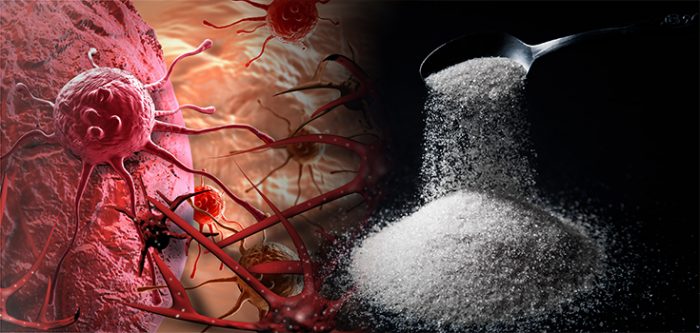
MYTH: Taking sugar in food and soft drinks can cause cancer.
FACT: Sugar does not cause cancer, either in its natural form in sugar-containing food items (such as yam, potato, pasta, wheat and rice) or in processed forms (such as in soda and fizzy drinks, corn syrup and fruit juices). It may, however, leave you at the risk of being obese or overweight. This is a risk factor in the development of around 11 different cancers (including bowel, breast and liver cancer) and negatively affects your overall health.

MYTH: Sugar feeds cancer cells and can make cancer grow faster
FACT: Sugar is important for your body as it provides you with the necessary energy for your day to day activities. All cells require sugar (or glucose) for their day to day activities and will convert fats or proteins into glucose when necessary because it is very important for the survival of these cells, including the cancer cells. This, however, does not mean that sugar specifically fuels cancer cells.
Eating sugar will not make cancer grow faster and if stop taking sugar, this does not mean cancer cells will stop growing. You will be starving yourself of a necessary food item if you eliminate all forms of sugar and also reducing the efficiency of your immune system. People diagnosed with cancer are as a result not exempted from consuming sugar

MYTH: Sugar can make cancer come back
FACT: Sugar does not affect the chances of cancer coming back. Eating excess sugar-based food items may leave you overweight or obese which increases the chances of a recurrence and also increases the chances of metastasis. Keeping a healthy weight by limiting your intake of sugar-based food items and eating healthy will help you feel good and your body will be more equipped to deal with cancer and cancer treatment. Switch from soda to water and eat more fruits and vegetables. You may add fruits like berries or citrus to your water to make it more palatable.
WHAT CAUSES CANCER?
Cells are designed to live for a set period of time after which they get a signal to die. In cancer, this signal is lost or neglected due to genetic changes. The affected cell(s) then continues to live and grow in an unrestrained, disorderly manner till it forms a mass (or tumour) which is able to move beyond the usual borders of the cell and grow into nearby spaces or tissues and sometimes, it may move to parts of the body further away from the site where cancer develops.

Some cancers have specific causes, such as:
- Infections: Human papillomavirus infection may cause cervical cancer.
- Exposure to radiation and defects in genes: ultraviolet rays from the sun and skin cancer.
- Lifestyle habits: smoking and alcohol use may cause of lung and liver cancer respectively
For other cancers, a specific cause is not known. They are usually due to a number of factors or causes which sometimes interact. If you have been diagnosed with cancer, the best thing to do is to start treatment as soon as possible. This may include surgery, chemotherapy or radiotherapy. Your oncologist will make a treatment plan with your help.
Still got questions or need further clarification? Please post it in the comment box or chat with any of our certified oncologists. We would love to hear from you. You can also read more about cancer myths here
Until the next episode. Remember; To always seek medical advice from certified medical experts and Stay healthy always.
Loads of Love
Oncopadi cares

